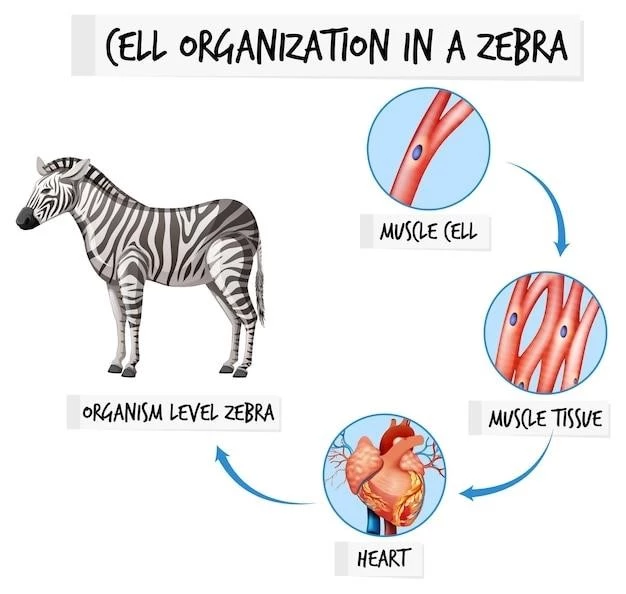Zebeta⁚ A Comprehensive Guide
When it comes to Zebeta, it is essential to understand its varied uses and benefits. From managing high blood pressure to preventing chest pain, Zebeta offers a range of therapeutic advantages that contribute to overall cardiovascular health.
Zebeta⁚ Uses and Benefits
Zebeta, also known as bisoprolol, is primarily used to treat various conditions related to the cardiovascular system. Its main use is in the management of high blood pressure, also known as hypertension. By effectively lowering blood pressure, Zebeta helps reduce the risk of heart attacks, strokes, and kidney problems associated with hypertension.
Another significant benefit of Zebeta is its role in improving heart function in patients with heart failure. It helps to enhance the heart’s ability to pump blood efficiently, leading to improved symptoms and overall quality of life for heart failure patients.
Furthermore, Zebeta is commonly prescribed to prevent chest pain (angina) in individuals with coronary artery disease. By reducing the workload of the heart and decreasing its oxygen demand, Zebeta can alleviate chest pain and improve exercise tolerance in patients with this condition.
Some less common uses of Zebeta include its off-label use in treating certain types of arrhythmias (irregular heartbeats) and in the prevention of migraine headaches. While these uses are not as widely recognized as its primary indications, some healthcare providers may prescribe Zebeta for these purposes based on individual patient needs.
In summary, the key uses and benefits of Zebeta include⁚
- Management of high blood pressure
- Improvement of heart function in heart failure patients
- Prevention of chest pain in individuals with coronary artery disease
- Potential off-label uses in treating arrhythmias and preventing migraines
Overall, Zebeta plays a crucial role in the treatment and management of various cardiovascular conditions, providing patients with improved cardiovascular health and quality of life.
Zebeta⁚ Side Effects Overview
Like all medications, Zebeta (bisoprolol) may cause side effects in some individuals. Common side effects of Zebeta include fatigue, dizziness, headache, and diarrhea. These are usually mild and transient, resolving as the body adjusts to the medication.
More serious side effects that may occur with Zebeta include slow or irregular heartbeat, difficulty breathing, swelling of the hands or feet, and fainting. If any of these severe side effects are experienced, immediate medical attention is necessary.
It is important to note that Zebeta, as a beta-blocker, can mask the symptoms of low blood sugar in diabetic patients. Individuals with diabetes should closely monitor their blood sugar levels while taking Zebeta to prevent hypoglycemia (low blood sugar).
Rare but serious side effects of Zebeta may include mental/mood changes, depression, and worsening heart failure symptoms. Patients should promptly report any unusual symptoms or changes in their condition to their healthcare provider.
Additionally, some individuals may experience allergic reactions to Zebeta, characterized by rash, itching, swelling, severe dizziness, or trouble breathing. Anyone experiencing signs of an allergic reaction should seek immediate medical assistance.
It is essential for patients to communicate any side effects they experience while taking Zebeta to their healthcare provider to determine the appropriate course of action. Adjustment of the dosage or switching to an alternative medication may be considered to mitigate side effects while maintaining effective treatment of the underlying condition.
Zebeta⁚ Drug Interactions and Warnings
When using Zebeta (bisoprolol), it is crucial to be aware of potential drug interactions and important warnings associated with its use. Zebeta can interact with various medications, leading to altered effectiveness or increased risk of side effects.
Some medications that may interact with Zebeta include other beta-blockers, calcium channel blockers, certain antiarrhythmic drugs, and antidepressants. Concurrent use of these medications with Zebeta can potentiate the effects on the cardiovascular system or interfere with the metabolism of the drugs, necessitating dose adjustments or alternative treatment strategies.
Prior to starting Zebeta, patients should inform their healthcare provider about all medications, supplements, and herbal products they are currently taking to avoid potential drug interactions. Pharmacists can also play a valuable role in assessing and preventing harmful drug combinations.
Individuals with certain medical conditions should exercise caution when taking Zebeta. Patients with a history of heart failure, asthma, or certain heart rhythm disorders may be at increased risk of adverse effects from beta-blockers like Zebeta. Close monitoring and proper evaluation by a healthcare professional are essential in such cases.
Special precautions should be taken when considering Zebeta for pregnant or breastfeeding women. The potential risks and benefits of Zebeta use during pregnancy or lactation should be carefully evaluated by a healthcare provider to ensure the safety of both the mother and the baby.
Patients should be advised not to abruptly stop taking Zebeta without consulting their healthcare provider, as sudden discontinuation of beta-blockers can lead to rebound hypertension or worsening of certain cardiovascular conditions. A gradual tapering of the medication under medical supervision is recommended.
Overall, understanding the potential drug interactions, warnings, and precautions associated with Zebeta is paramount for safe and effective use of this medication in the management of cardiovascular conditions.
Zebeta vs. Other Beta-Blockers
Comparing Zebeta (bisoprolol) to other beta-blockers reveals both similarities and differences in their pharmacological profiles. One key distinction of Zebeta is its cardioselectivity, meaning it primarily targets beta-1 receptors in the heart, leading to fewer respiratory side effects compared to non-selective beta-blockers.
When compared to non-selective beta-blockers like propranolol, Zebeta may be better tolerated by patients with asthma or chronic obstructive pulmonary disease (COPD) due to its reduced impact on beta-2 receptors in the lungs. However, the cardioselectivity of Zebeta may also result in a slightly lower efficacy in conditions where the inhibition of beta-2 receptors is beneficial.
Zebeta’s longer duration of action allows for once-daily dosing in most cases, offering convenience and potentially better adherence compared to beta-blockers that require multiple daily doses. This dosing schedule may contribute to improved patient compliance and treatment outcomes.
In terms of cardiovascular outcomes, studies have shown that Zebeta is as effective as other beta-blockers in reducing blood pressure, improving heart function in heart failure, and preventing cardiovascular events. Its unique pharmacological properties make it a valuable option in the management of hypertension and other cardiovascular conditions.
While Zebeta presents advantages in terms of cardioselectivity and once-daily dosing, the choice between Zebeta and other beta-blockers depends on individual patient factors, such as overall health status, concomitant medical conditions, and potential drug interactions. Healthcare providers must consider these factors when selecting the most appropriate beta-blocker for each patient.
Ultimately, the comparison of Zebeta to other beta-blockers highlights its specific characteristics and benefits, positioning it as a valuable therapeutic option in the treatment of cardiovascular diseases.
Zebeta⁚ Treatment of High Blood Pressure
Zebeta (bisoprolol) is an effective medication used in the treatment of high blood pressure, also known as hypertension. By blocking the action of certain stress hormones like adrenaline on the heart and blood vessels, Zebeta helps to reduce blood pressure and improve cardiovascular health.
The primary goal of treating high blood pressure with Zebeta is to lower the risk of serious health complications such as heart disease, stroke, and kidney problems. By maintaining blood pressure within a normal range, Zebeta can protect vital organs and decrease the strain on the heart.
Zebeta is often prescribed as a first-line treatment for hypertension due to its proven efficacy and tolerability. It can be used alone or in combination with other antihypertensive medications to achieve optimal blood pressure control in patients with elevated readings.
Individuals with high blood pressure who are prescribed Zebeta should adhere to their treatment regimen as directed by their healthcare provider. Consistent use of the medication, along with lifestyle modifications such as maintaining a healthy diet, exercising regularly, and managing stress, can help in effectively managing hypertension.
Regular monitoring of blood pressure levels is essential while taking Zebeta to assess the response to treatment and make any necessary dosage adjustments. Patients should report any symptoms or side effects to their healthcare provider promptly to ensure the safe and effective management of high blood pressure.
Overall, Zebeta plays a vital role in the treatment of high blood pressure by helping to lower blood pressure levels, reduce the risk of cardiovascular events, and improve overall cardiovascular health. With proper use and monitoring, Zebeta can contribute to better blood pressure control and reduce the burden of hypertension-related complications.

Zebeta⁚ Clinical Trials and Research
Clinical trials and research studies play a crucial role in evaluating the safety and efficacy of Zebeta (bisoprolol) in various patient populations and clinical conditions. These trials provide valuable insights into the drug’s benefits, potential side effects, and optimal use in the management of cardiovascular disorders.
Many clinical trials have focused on Zebeta’s effectiveness in lowering blood pressure and improving cardiovascular outcomes in patients with hypertension. These studies have demonstrated the drug’s ability to reduce blood pressure levels, leading to a decreased risk of heart attacks, strokes, and other cardiovascular events.
In addition to hypertension, Zebeta has been extensively studied in the treatment of heart failure. Clinical trials have shown that Zebeta can improve heart function, reduce symptoms of heart failure, and enhance the overall quality of life in patients with this condition.
Research on Zebeta has also explored its role in preventing chest pain (angina), managing arrhythmias, and potential off-label uses in conditions such as migraines. These studies provide valuable data on the drug’s efficacy and safety profile in diverse patient populations.
Furthermore, ongoing research continues to investigate new applications of Zebeta, novel formulations, and potential combination therapies to further optimize cardiovascular outcomes in patients. These studies are essential for expanding our understanding of Zebeta’s mechanisms of action and identifying new therapeutic opportunities.
Overall, the findings from clinical trials and research on Zebeta contribute to evidence-based practice in the management of cardiovascular diseases. By continuously evaluating and refining the use of Zebeta through scientific inquiry, healthcare providers can offer more personalized and effective treatment strategies to patients with varying cardiovascular needs.
